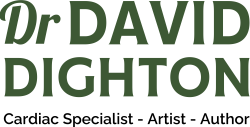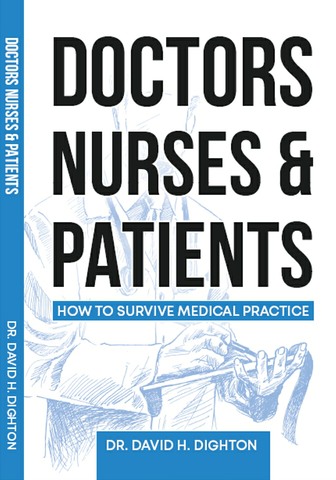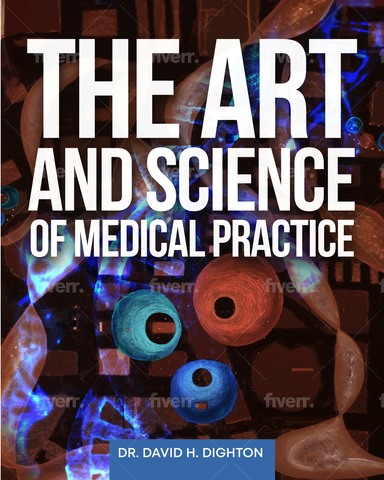





©daviddighton.com 2024






OLDER BOOKS
PAINTINGS
How to Become Heart-
A User’s Guide to Heart Health and Heart Disease Prevention.
Have you ever witnessed the devastating impact of heart disease or a stroke on a loved one?
If your Mum or Dad have heart disease, you have a 4:1 chance yourself of getting the same.
Learn how to detect heart disease really early, and how to protect yourself and your family.
Please click on the image above to download my e-
I started oil painting when I was a junior doctor in the early 1970s. I spent most of my life as a physician and cardiologist. I was happy to retire after disagreeing with how medicine is practised and controlled in the UK. I am now in my late 70s with nobody to direct what colours and shapes I use in my artwork!
After a brief rest of 50 years, I have started painting again. My principal style is abstract symbolism – shapes that mean something.
I have my own website to showcase my Abstract and Still Life oil paintings, www.uniqart4u.co.uk. If you’d like to see my latest work, please visit the site where some of my paintings are for sale or can be made available as Giclée prints.





Art & Language
I now write. I paint in oils (www.uniqart4u.co.uk). I trade shares and ETFs. I play the piano and guitar in an untutored way, and write simple tunes for myself (at least I can play them easily). I have studied languages most of my life, and hope one day to speak Italian and French fluent enough to argue with taxi-
My Books
I have published two books about food and the heart. The important question to ask is this -

MY PROFESSIONAL CAREER
I qualified as a doctor at the London Hospital Medical College in 1966. I practised as a general physician, and cardiologist for 53 years.
After a British Heart Foundation cardiac research fellowship at St George's Hospital, London, with Aubrey Leatham and Alan Harris, I became a lecturer in medicine and cardiology at Charing Cross Hospital. In 1982, I started work as the Chef de Clinique, and Assistant Professor in Cardiology, at the Vrije Universiteit, Amsterdam.
When I returned from Amsterdam, I chose to work alone in my private cardiac practice in Loughton, while occasionally attending the Wellington Hospital, London, where I was among the first to perform heart catheterisations and pacemaker implantations.
When I retired, I had generated written notes on 20,000 patients.
MY RECENT BOOKS: Please click on the book image to purchase from Amazon or click here to purchase the e-
Doctors, Nurses & Patients: How to Survive Medical Practice (May 2024)
In the first chapter, I describe 120 caricatures of doctors and nurses, together with many pertinent and amusing anecdotes, some of which are deadly serious.
In the second chapter, I describe 70 patient types of patient, together with many illustrative anecdotes.
In the third chapter, I explore the interrelationship between patients, doctors and nurses, and how they relate to medical bureaucracy. This is important now that it affects the morbidity and mortality of patients and the working conditions of nurses and doctors in the UK.
The Art and Science of Medical Practice
(Sept 2024)
This book contains many practical tips about how to practise medicine, judged as successful by patients. These tips result from 55-
Scientific medicine has provided us with many indispensable tools, but it is the art of medicine that defines how best to use them to fulfil our patient's needs.
Doctors, Nurses & Patients: How to Survive Medical Practice (Mar 2024)
The calories we eat, and the calories we use while exercising, are the focus of every book on dieting and slimming, but typically, one key topic is missing -
Psychologically, we all have a 'Fat Mentality' and 'Fit Mentality'. These two components of our eating and exercise mindset co-

| Who Loses Wins |
| The Doctor's Apprentice |
| The NHS. Our Sick Sacred Cow |